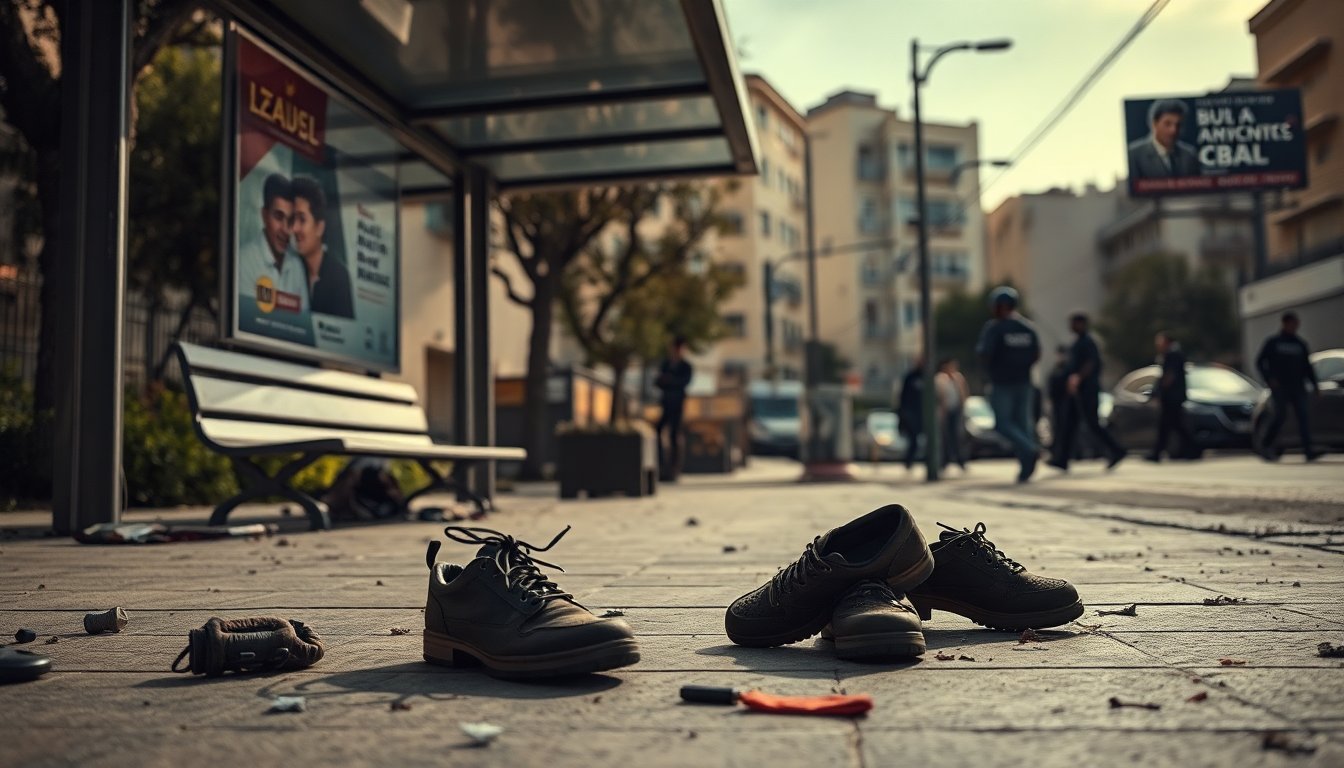Table of Contents
The recent escalation of violence in Israel has raised significant concerns as tragic incidents unfold with alarming frequency. On a bustling Monday morning, a shooting at a bus stop in Jerusalem claimed the lives of six individuals and injured twelve more. This incident, marked by chaos and fear, reflects a larger pattern of violence exacerbated by the ongoing conflict in Gaza.
The Incident: A Closer Examination
During the morning rush hour, assailants opened fire on unsuspecting individuals at a bus stop located at a busy intersection. The aftermath was devastating, with witnesses recounting scenes of panic as civilians fled the area. The chaotic scene was further amplified by the sight of a bus windshield riddled with bullet holes and personal belongings scattered across the street. Israeli authorities responded swiftly, with civilians and a soldier neutralizing the attackers shortly after the shooting began.
This event marks the deadliest shooting in Israel since October 2024, highlighting an alarming trend of violence that has surged in recent months. The Israeli military has been actively engaged in operations targeting Palestinian villages in the West Bank, further intensifying tensions in the region. The situation has been complicated by a rise in settler violence against Palestinians, creating a volatile environment that poses risks to both communities.
Broader Context: The Ongoing Conflict
The backdrop of this violence is the escalating conflict in Gaza, which has led to increased military actions and retaliatory attacks. As stated by Israeli Prime Minister Benjamin Netanyahu, Israel is confronted with a multifaceted war that includes threats from Gaza, the West Bank, and within its borders. The ongoing unrest has created a cyclical pattern of violence, where each incident fuels further retaliatory actions from both sides.
In the wake of the recent attack, Hamas expressed support for the violence, framing it as a natural response to the perceived injustices faced by Palestinians. This rhetoric underscores the deep-seated animosities that continue to fuel the conflict, complicating the prospects for peace and reconciliation. The international community has called for restraint, yet the realities on the ground remain fraught with tension.
Implications for the Future
As we analyze the implications of this recent violence, it is essential to consider the potential ramifications for both Israeli and Palestinian communities. The loss of life and the pervasive fear that accompanies such attacks can lead to further entrenchment of positions on both sides, making dialogue and resolution increasingly difficult.
Furthermore, data from humanitarian organizations indicates a significant toll on both populations, with casualties reported on both sides of the conflict. The ongoing cycle of violence not only impacts immediate security but also has long-term implications for stability in the region. As Israeli military operations continue to respond to perceived threats, the potential for escalation remains high.
In conclusion, the recent shooting in Jerusalem is a stark reminder of the complexities surrounding the Israeli-Palestinian conflict. While immediate responses are crucial in addressing security concerns, a deeper understanding and commitment to resolving the underlying issues will be essential for achieving lasting peace in the region.


